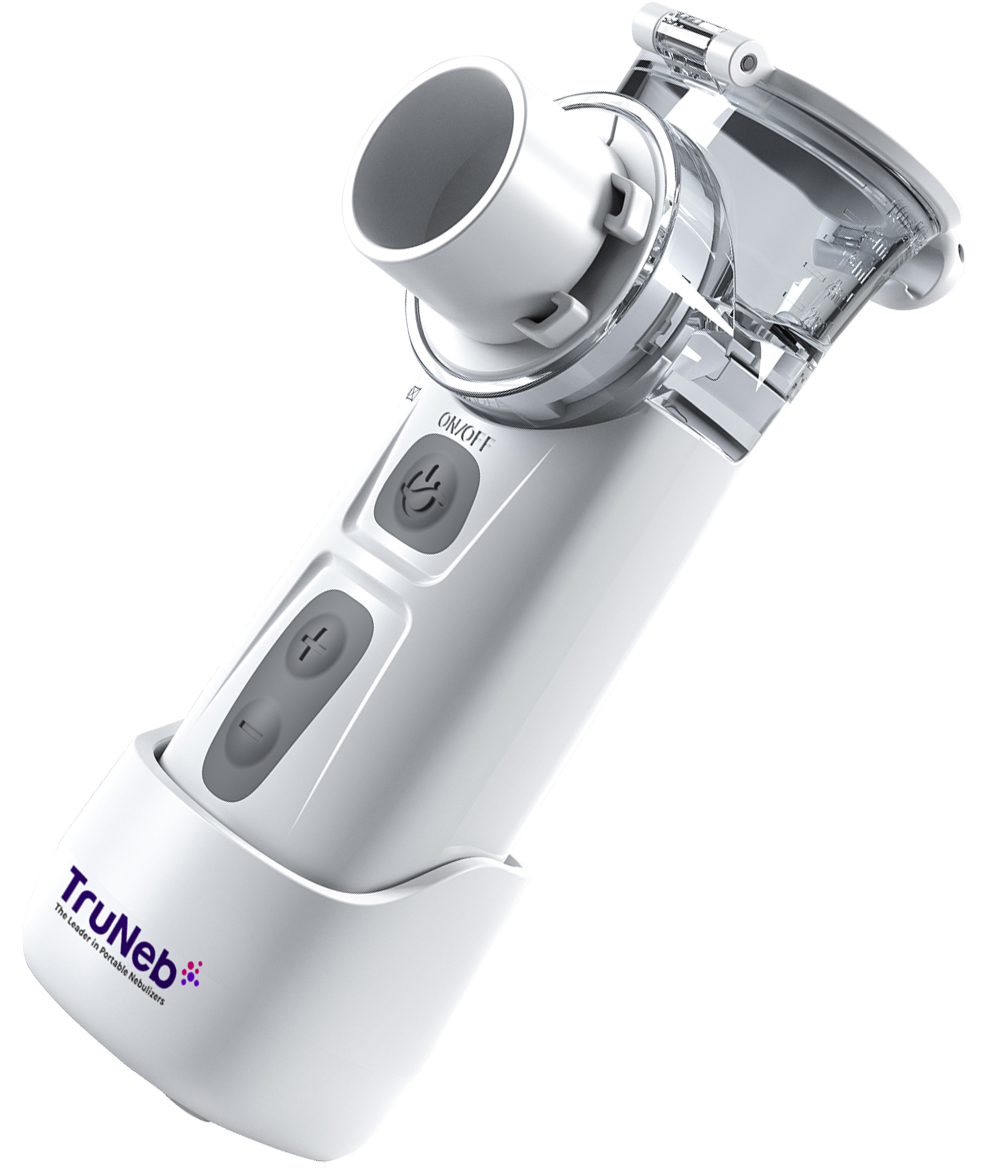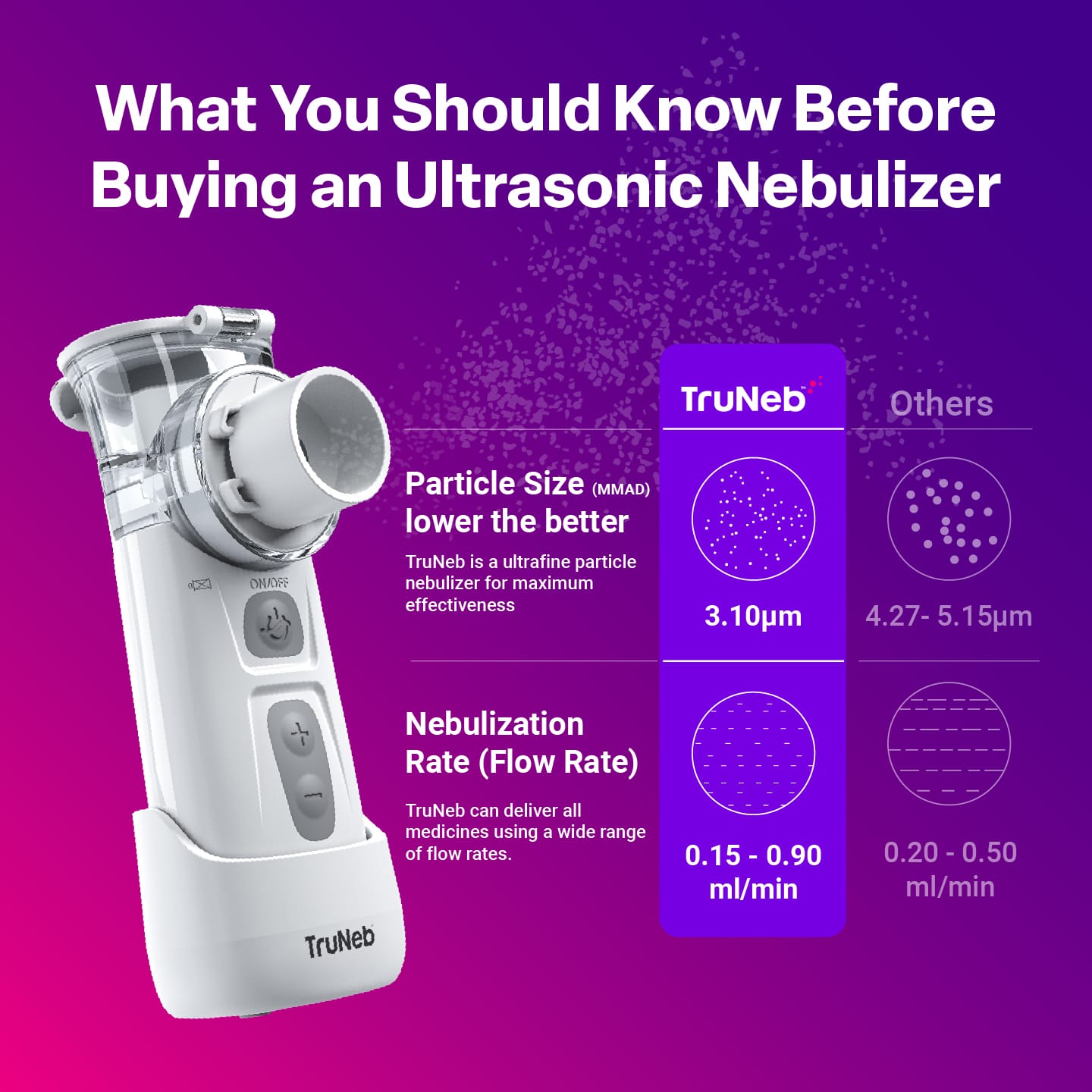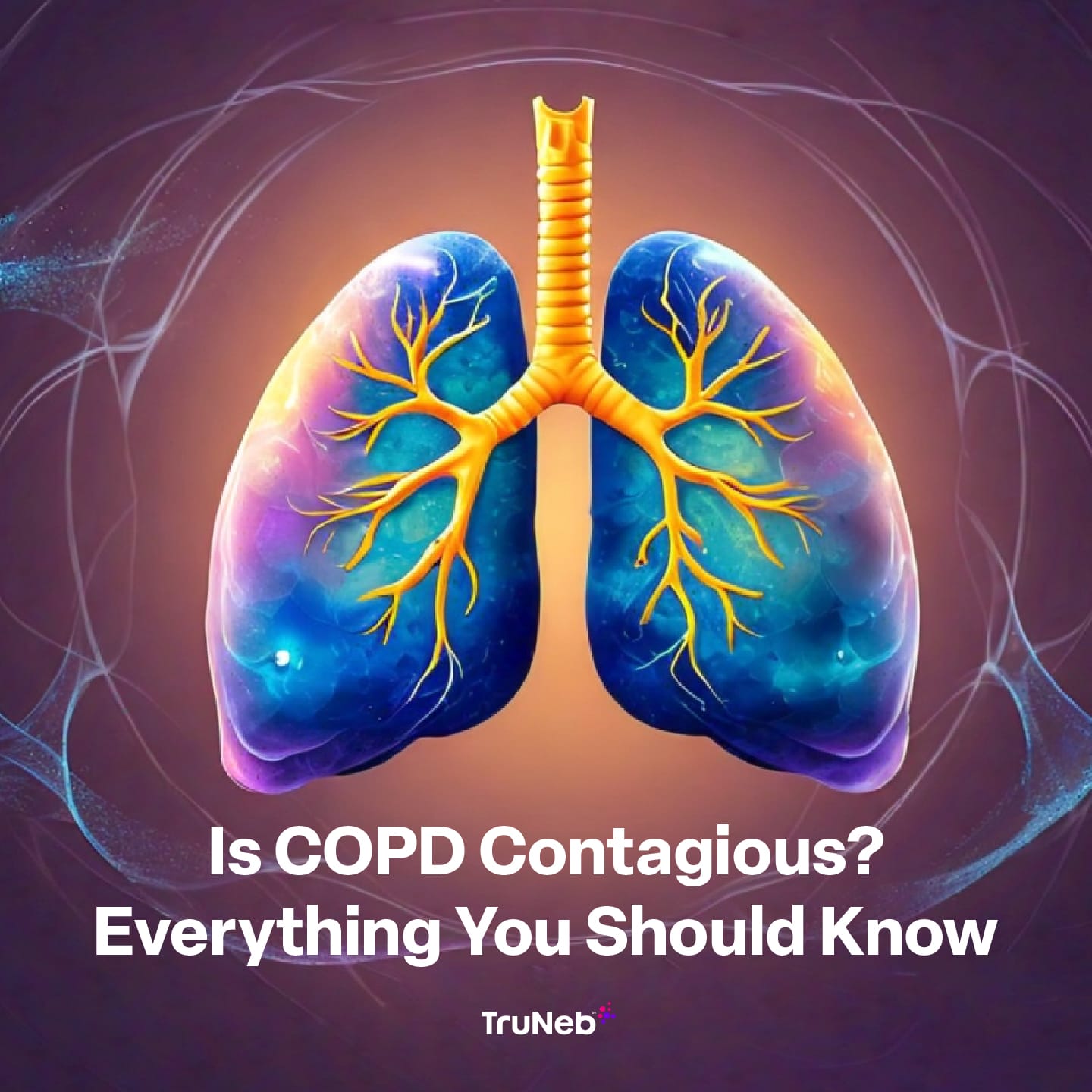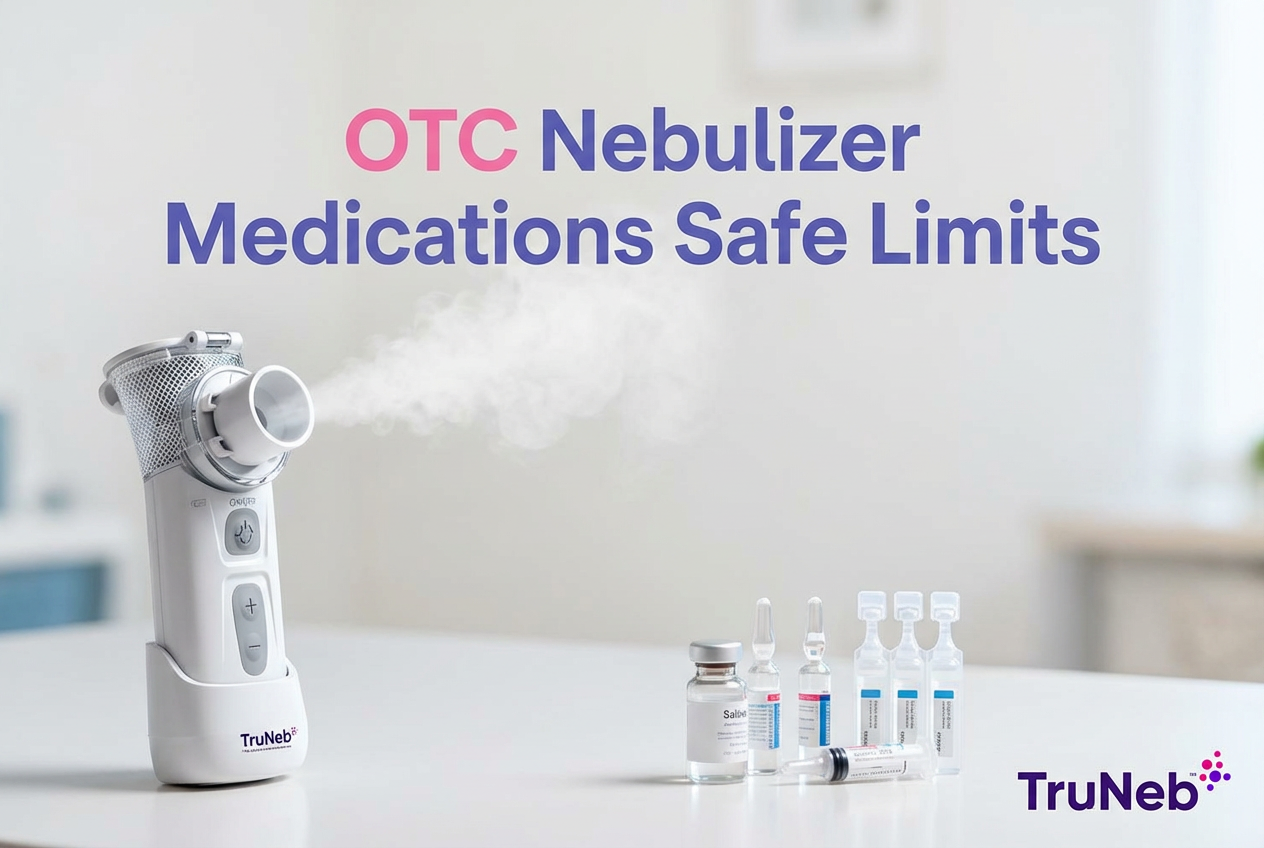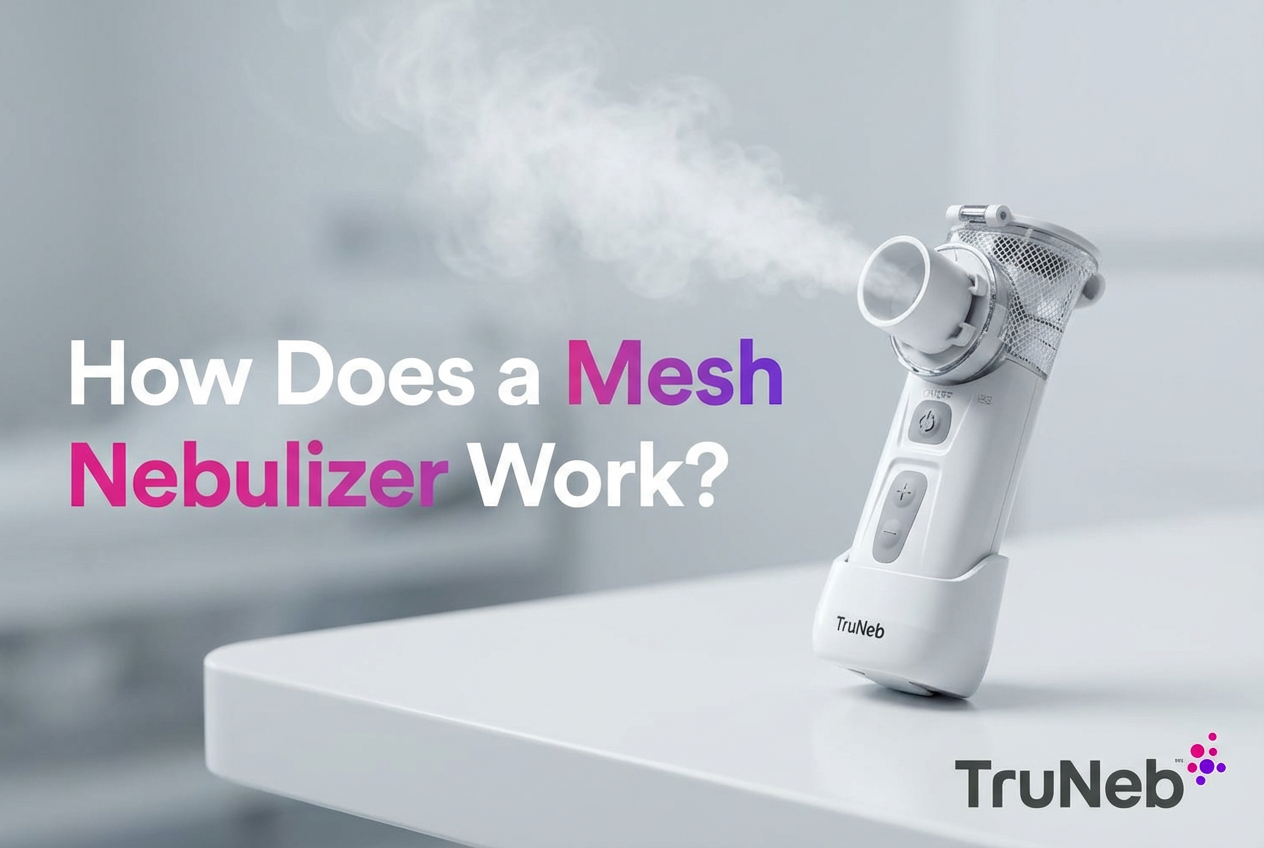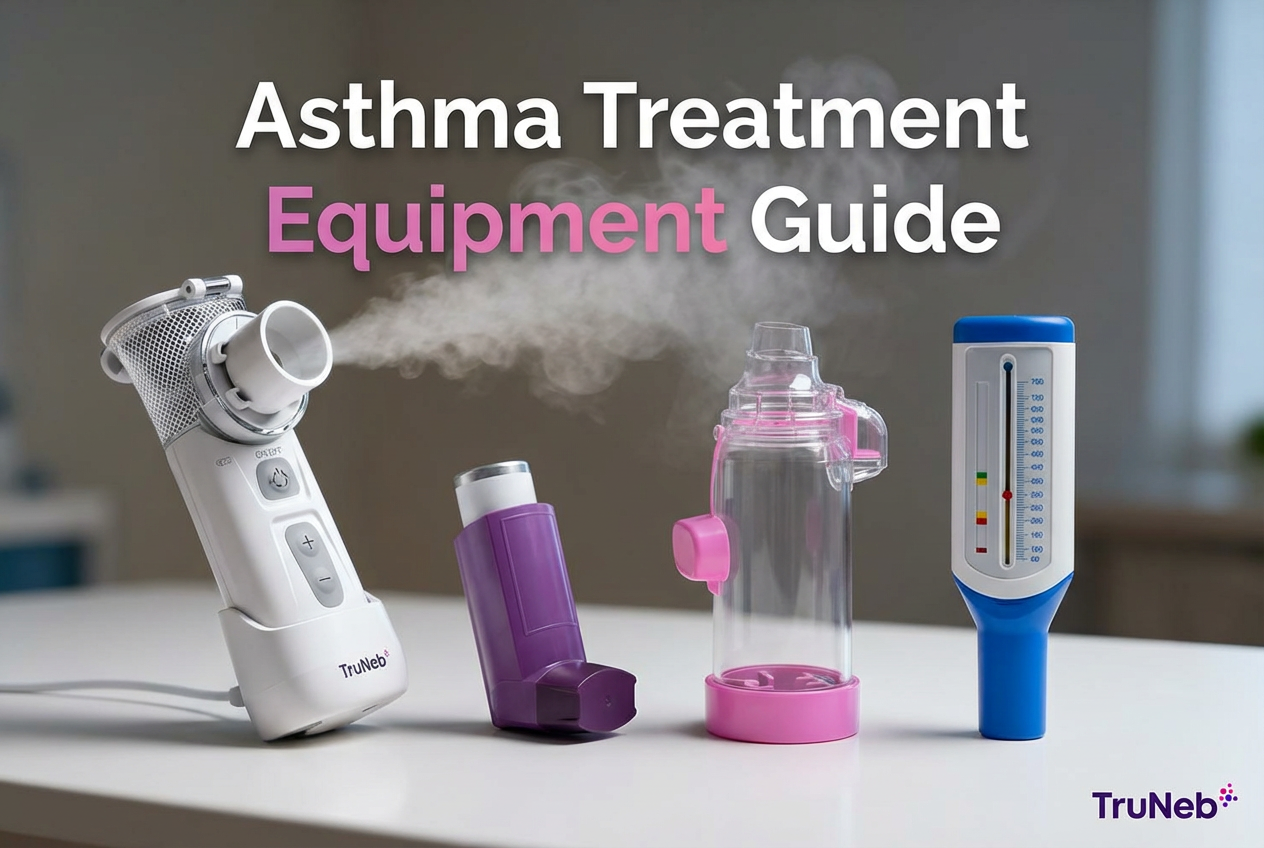On this page
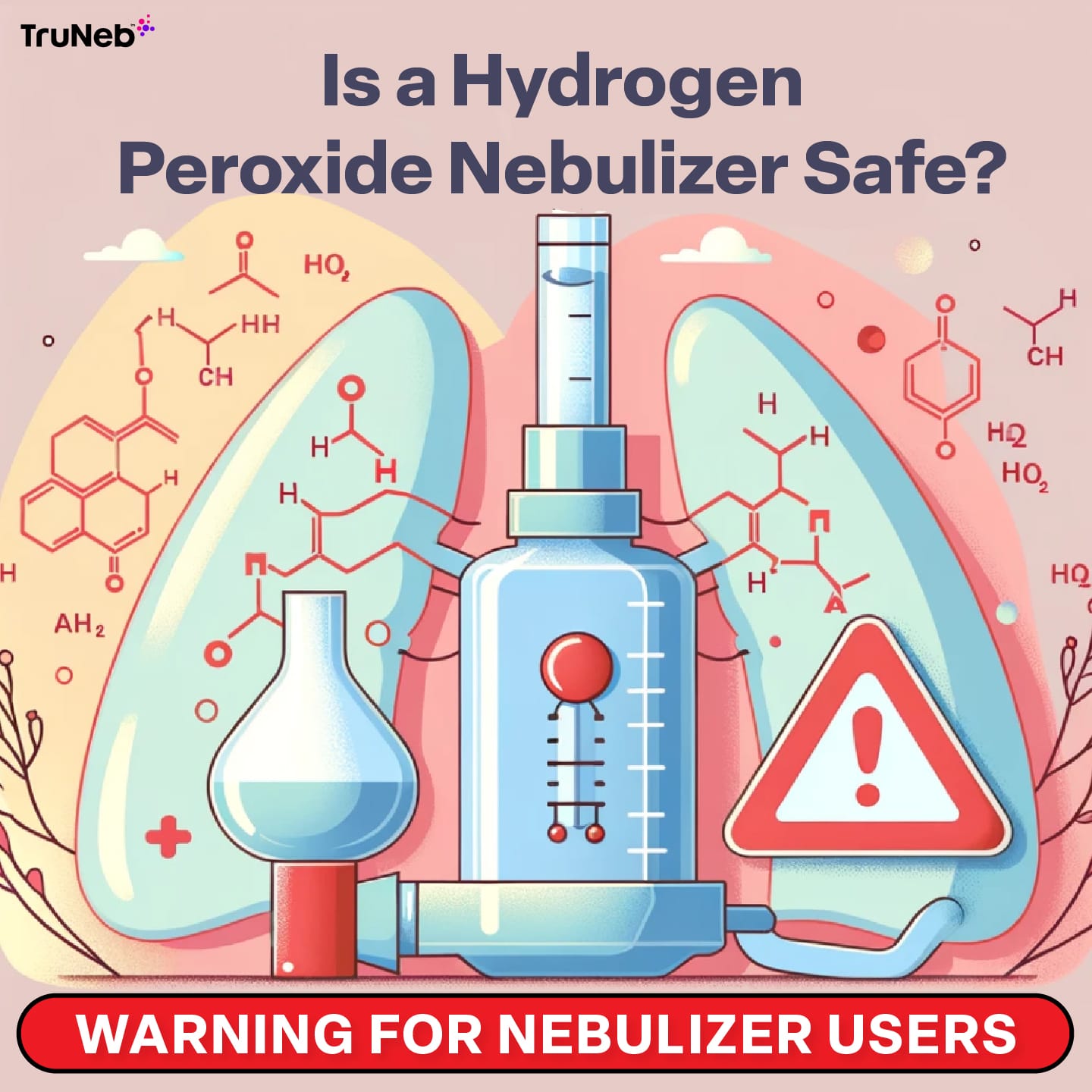
Since the beginning of the COVID-19 pandemic in 2020, the idea of hydrogen peroxide nebulizers has circulated the internet. Health influencers pushing “natural” treatments have advocated for and promoted nebulizing with hydrogen peroxide – but is it safe? Before you run to the store for some peroxide, let’s dive into the safety of this treatment so you can make an informed decision.
What Is Hydrogen Peroxide Used For?
If you’re interested in the nerdy science part of it, Hydrogen Peroxide (H₂O₂) is a chemical compound composed of two hydrogen atoms and two oxygen atoms. It is known for its strong oxidizing properties, making it a powerful bleaching agent and disinfectant.
Hydrogen peroxide has a wide range of uses including:
Medical and Personal Care:
- Disinfectant: Used to clean wounds to prevent infection.
- Mouthwash: In diluted form, it can be used as a mouth rinse to help kill bacteria.
- Teeth Whitening: Active ingredient in many teeth whitening products.
Household Cleaning:
- Stain Removal: Effective in removing stains from fabrics.
- Surface Cleaner: Used to disinfect surfaces in kitchens and bathrooms.
- Mold and Mildew Removal: Helps in eliminating mold and mildew from surfaces.
Industrial Applications:
- Bleaching Agent: Used in the paper and textile industries to bleach paper pulp and fabrics.
- Wastewater Treatment: Utilized to remove organic impurities and as a disinfectant.
Environmental Uses:
- Water Treatment: Employed in treating drinking water and wastewater to eliminate contaminants.
- Soil Remediation: Helps in the treatment of contaminated soil.
Agriculture:
- Hydroponics: Used to oxygenate water for plant roots.
- Seed Treatment: Helps in disinfecting seeds before planting.
Hair Care
- Hair Bleaching: Commonly used in hair dyes and bleaching products.
Even though the substance has an extensive range of uses, the compound must be handled with care. In high concentrations, it can be corrosive and cause burns.
Is a Hydrogen Peroxide Nebulizer Safe?
Despite a group of alternative medicine and natural health advocates promoting the effectiveness of hydrogen peroxide nebulization, no – the treatment is NOT safe and should never be attempted.
Serious Side Effects
Nebulizing hydrogen peroxide has been shown to cause chemical pneumonitis in multiple patients. Chemical pneumonitis is inflammation of the airways caused by inhaling toxic substances. Injury and damage to the sensitive lung tissue is caused through corrosive injury, oxygen gas formation, and lipid peroxidation. Chronic use can lead to irreversible damage to the bronchial tubes and alveoli (the little air sacs where oxygen and carbon dioxide exchange takes place).
What Leading Health Experts Say
You don’t have to just take our word for it. Here’s what leading health organizations and experts say about hydrogen peroxide nebulizers:
Agency for Toxic Substances and Disease Registry
“Hydrogen peroxide can be toxic if ingested, inhaled, or by contact with the skin or eyes. Inhalation of household strength hydrogen peroxide (3%) can cause respiratory irritation. Exposure to household strength hydrogen. peroxide can cause mild ocular irritation. Inhalation of vapors from concentrated (higher than 10%) solutions may result in severe pulmonary irritation.”
“Nebulizing or ingesting hydrogen peroxide is dangerous. Nebulized hydrogen peroxide therapy is not recommended for the treatment of COPD. The COPD Foundation does not recommend the use of nebulizing hydrogen peroxide in the treatment of COPD or other lung disease until there is more rigorous scientific and medical proof of its effectiveness.”
Asthma and Allergy Foundation of America“"DO NOT put hydrogen peroxide into your nebulizer and breathe it in. This is dangerous!" the organization said in its post. "It is not a way to prevent nor treat COVID-19."
A hydrogen peroxide nebulizer is not only ineffective at treating illness, but can be dangerous and exacerbate conditions like asthma and COPD.
Misinformation and the Spread of Dangerous Practices
In the age of social media and instant access to information, it's easier than ever for misinformation to spread rapidly. When it comes to health and wellness, this can be even more dangerous, as it may lead people to adopt unsafe practices – like using hydrogen peroxide in nebulizers.
Misinformation can come from various sources, including well-meaning individuals who may not have the necessary expertise or knowledge to provide accurate health advice. It can also stem from those seeking to profit by promoting unproven or dangerous treatments.
Always fact-check health claims and rely on credible sources for health information. Before attempting any type of treatment, consult with licensed physicians. Additionally, refer to reputable health organizations, such as the Centers for Disease Control and Prevention (CDC), the World Health Organization (WHO), and the American Lung Association, for accurate and up-to-date information on respiratory health.
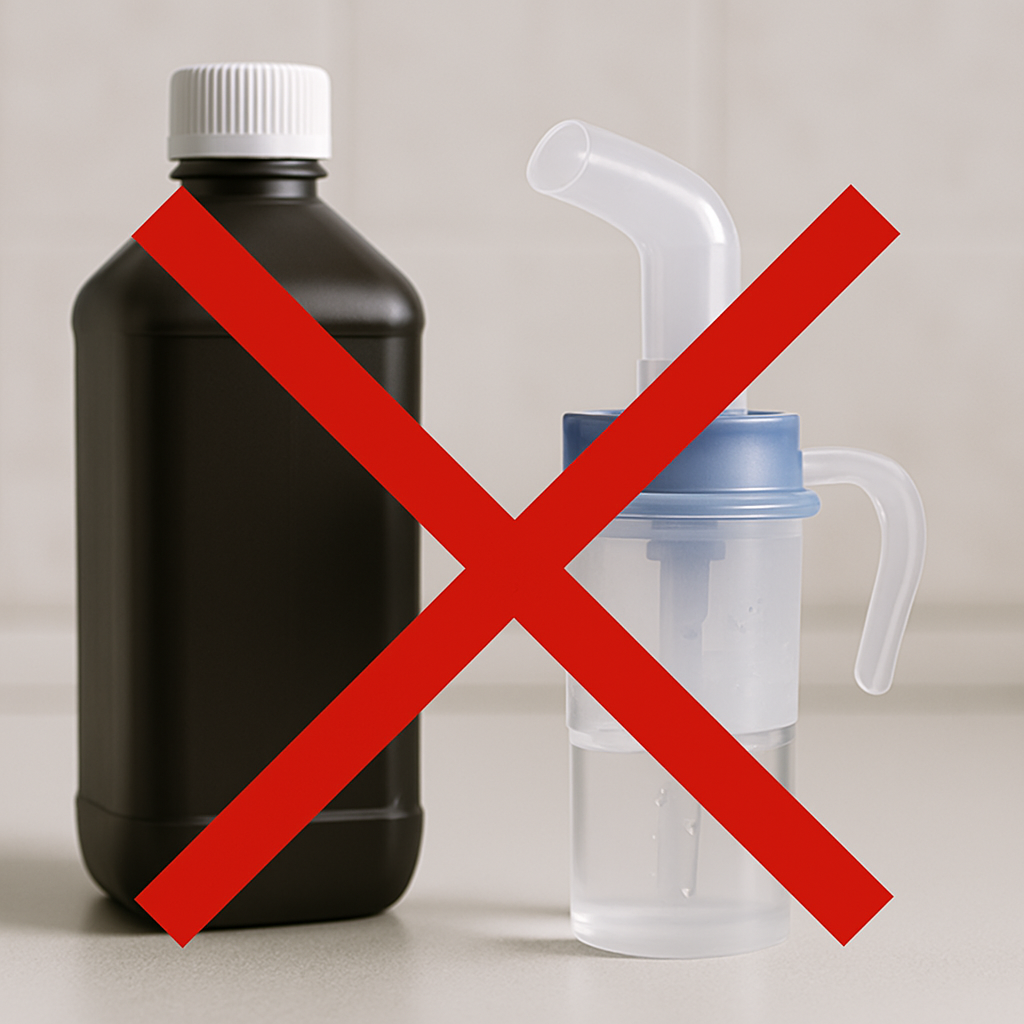
Safe and Effective Nebulizer Treatments
Using hydrogen peroxide in nebulizers is dangerous and not recommended, but there are several medically approved and safe medications that can be used to manage respiratory conditions like asthma and COPD.
Bronchodilators
Bronchodilators are a class of medications that help relax and open the airways, making it easier to breathe. They come in two main types: short-acting bronchodilators, which provide quick relief during an asthma attack or sudden breathlessness, and long-acting bronchodilators, which are used for long-term control and prevention of symptoms. Common bronchodilators include albuterol, levalbuterol, and formoterol.
Corticosteroids
Corticosteroids are another type of medication that can be given through a nebulizer. These medications work by reducing inflammation in the airways, which helps prevent asthma attacks and manage COPD symptoms. Inhaled steroids like budesonide and fluticasone, are often used in combination with bronchodilators to get best results.
Conclusion – Hydrogen Peroxide Nebulizers are Not Safe
While hydrogen peroxide has multiple uses, inhalation is not one of them. Nebulizing hydrogen peroxide is not only ineffective but potentially dangerous. Never use hydrogen peroxide in your nebulizer.
TruNeb™: The Most Convenient Nebulizer for Breathing Treatments
TruNeb™ offers a sleek, innovative nebulizer that’s easy to take anywhere. Our portable mesh nebulizer delivers more medication to your lungs than traditional jet nebulizers, and is compact enough to carry with you with ease. Add the TruNeb Portable Nebulizer to your treatment regimen.
Shop TruNeb™ Portable Nebulizer →
*Article reviewed by a licensed Registered Respiratory Therapist
*Last updated April 14, 2025

